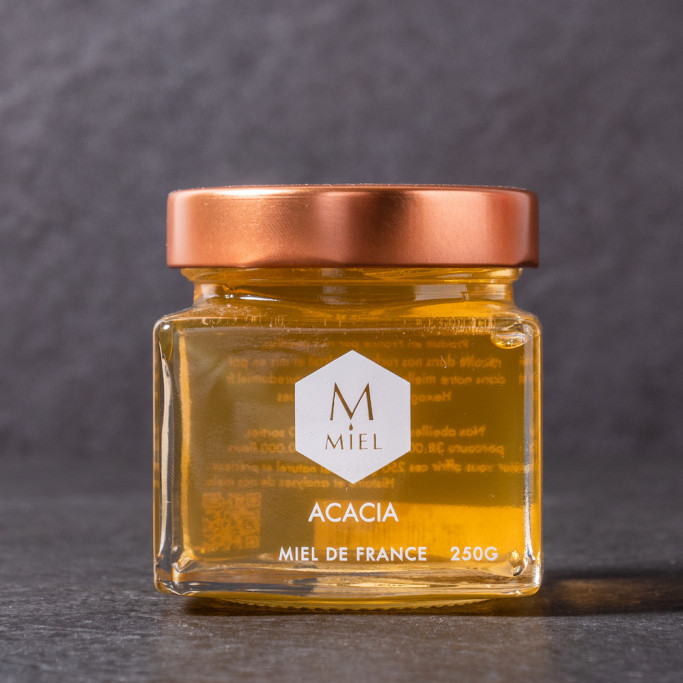






 0
0





 0
0
La Manufacture du Miel's acacia honey is delicate, floral and smooth, with light vanilla and fruity notes and hints of cocoa. It is one of the rare honeys to retain a liquid texture that does not crystallize, or only slowly, thanks to its low glucose content.
A distinguished, transparent jar.
With its low glycemic index, it's perfect for making pastries or sweetening drinks, desserts and savoury dishes. Also recognized for its health benefits, it promotes intestinal regularity, digestion and stabilization of gastric secretions, while relieving inflammation of the throat.
A committed honey, the fruit of the support and development work of the OFA (Office français d'Apidologie) beekeeping sector, to which we donate 100% of sales proceeds (see our commitments). It comes from the foothills of the Sainte Baume massif and the many beehives in the Bouches-du-Rhône region supported by the OFA: the largest herd of beehives in France.
250 g / 400 g

Nombreuses ont été les alertes. En 2018 la planète compte 7,5 milliards d’individus, et 1,5 milliards souffrent déjà de carence alimentaire. Que ferons-nous lorsque nous serons 9 milliards en 2050 ? 2050 c’est déjà demain. Par leur rôle de principal insecte pollinisateur, les abeilles sont responsables d’1/3 de la production de notre alimentation. Mais partout, leurs colonies s’effondrent... Les abeilles sont en train de disparaître. Tout l’écosystème est lié, il ne s’agit pas seulement d’abeille, il s’agit de l’avenir de la planète et de l’humanité.
